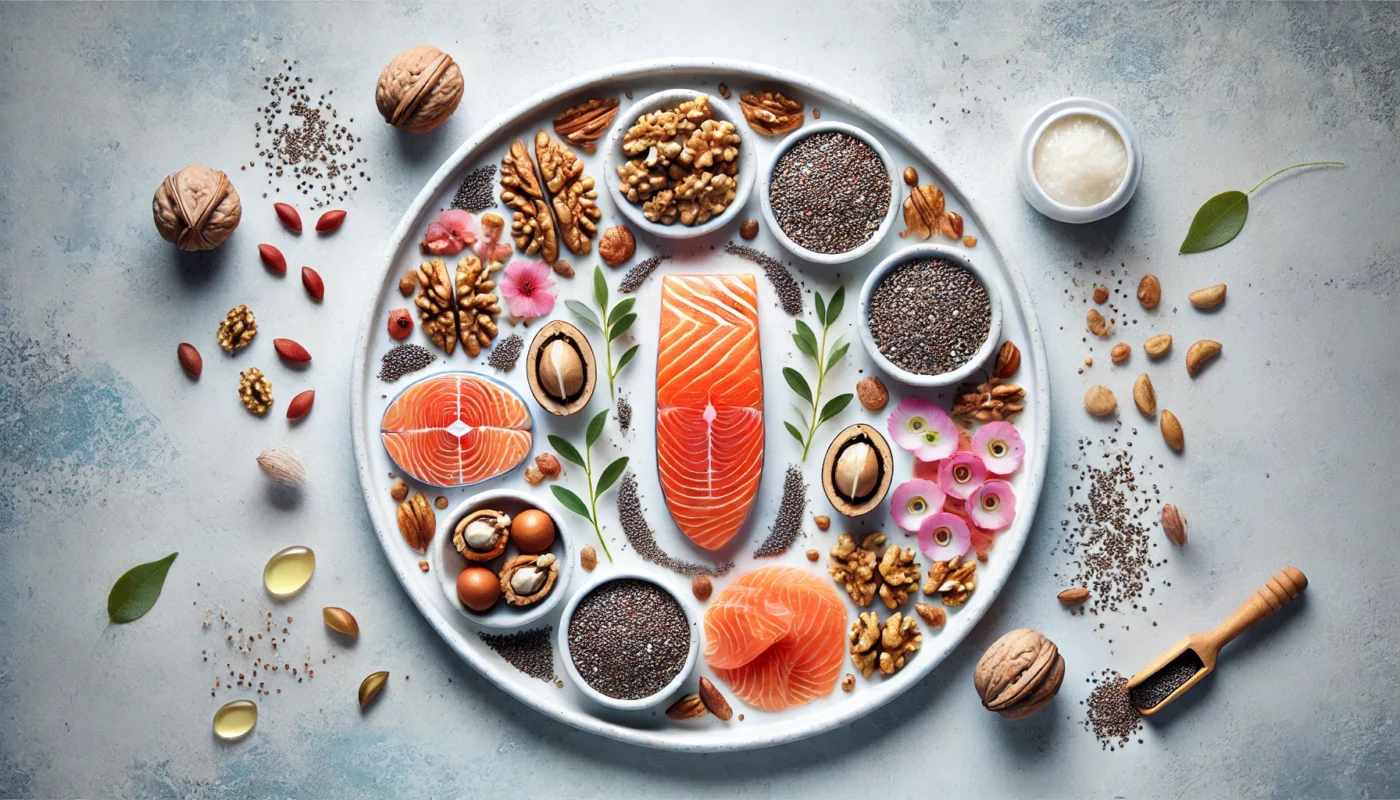Collagen is a buzzword in the health and wellness world. It’s hailed as the secret to youthful skin, healthy joints, and more. But what exactly is collagen? And how can you boost your body’s production of this vital protein?
Collagen is the most abundant protein in our bodies. It’s the building block of our skin, bones, and connective tissues. As we age, our collagen production naturally decreases. This can lead to wrinkles, joint pain, and other signs of aging.
So, how can you improve your collagen levels? This article will provide you with top tips to boost your collagen. We’ll delve into the science behind collagen production and provide practical strategies to enhance it.
We’ll explore dietary sources rich in collagen, supplements that can aid in its production, and lifestyle changes that can promote collagen synthesis. We’ll also debunk common myths about collagen and provide you with the facts.
Whether you’re a fitness enthusiast, a health enthusiast, or a medical patient, this guide will help you understand and apply holistic and alternative health approaches to boost your collagen levels. So, let’s dive in and discover how to improve your collagen for better health and recovery.
You may also like: Top Supplements to Enhance Bone Healing
Understanding Collagen and Its Importance
Collagen is the structural framework of our bodies. It’s a key protein that provides strength and elasticity to our tissues. Its fibers are like sturdy ropes, giving our skin firmness and resilience.
There are many types of collagen, with Type I, II, and III being the most common. Type I is abundant in skin, bones, and tendons. Type II is crucial for cartilage, while Type III is vital for blood vessels.
As we mature, collagen production slows, contributing to visible signs of aging. This decline affects not only skin appearance but also joint health. Hence, maintaining collagen levels is essential for overall well-being.
A robust collagen network supports skin’s youthful appearance and joint flexibility. It also plays an important role in wound healing, as it repairs and regenerates tissues. Understanding this vital protein can help you harness its benefits more effectively.
To appreciate collagen’s significance, consider these key points:
- Collagen makes up about 30% of the total protein in our body.
- It accounts for 70% of the dry weight of our skin.
- Key to maintaining strong bones and healthy joints.
With this knowledge, you can better understand the importance of supporting collagen production. Making informed choices about your diet, skincare, and lifestyle can help sustain collagen’s vital functions in your body.
The Natural Decline of Collagen Production
As we age, collagen production naturally dwindles. This decline often begins in our mid-twenties. Each passing decade sees a reduction of about 1% in collagen production.
This reduction manifests as sagging skin, wrinkles, and stiffness in joints. Less collagen means less structural support, impacting skin elasticity and bone health. The weakening of joints and ligaments can also lead to discomfort.
Environmental factors can accelerate this collagen loss. Sun exposure, pollution, and lifestyle choices like smoking further degrade collagen fibers. Understanding these influences can empower you to take protective measures and slow the decline.
Dietary Sources to Boost Collagen
Increasing collagen through diet is both effective and natural. Various foods naturally contain collagen or support its production. Adjusting your diet can significantly impact your collagen levels and overall health.
Not all foods are equally beneficial for collagen production. Prioritizing certain foods enhances the body’s ability to maintain and rebuild collagen. This section explores what you should focus on eating.
Foods High in Collagen
Direct sources of collagen mainly come from animal products. These foods supply the amino acids needed for synthesizing collagen.
- Bone Broth: Rich in gelatin, providing valuable amino acids.
- Chicken Skin: Contains concentrated collagen fibers.
- Fish and Fish Skin: Marine collagen in fish is easy to absorb.
- Pork Skin and Gelatin: Also excellent sources of collagen.
Adding these foods to your diet helps ensure you’re ingesting direct collagen sources. This intake can benefit your skin, bones, and joints.
Vitamin C-Rich Foods for Collagen Synthesis
Vitamin C is essential for collagen synthesis. It acts as a cofactor in collagen production, crucial for maintaining its strength.
Fruits and vegetables loaded with vitamin C can stimulate collagen formation:
- Citrus Fruits: Oranges, lemons, and grapefruits are excellent sources.
- Berries: Strawberries, blueberries, and blackberries provide vitamin C and antioxidants.
- Leafy Greens: Spinach and kale offer vitamin C along with other nutrients.
Including vitamin C-rich foods in your diet helps fortify collagen production. This strategy supports skin health and repair.
Other Nutrients That Support Collagen Production
In addition to collagen-rich and vitamin C-rich foods, other nutrients play vital roles. These nutrients ensure optimal collagen production and maintenance.
Several nutrients to focus on include:
- Proline and Glycine: Found in egg whites and dairy products, essential for collagen formation.
- Copper: Present in nuts and seeds, supports collagen fiber connection.
- Hyaluronic Acid: Found in root vegetables like sweet potatoes, aids skin hydration and collagen maintenance.
Incorporating these nutrients aids in rebuilding and maintaining collagen. Such a diet provides the building blocks your body needs for youthful, resilient skin.
Supplements to Increase Collagen
Aside from dietary sources, supplements can effectively boost collagen levels. They provide a convenient way to ensure adequate collagen intake. Choosing the right supplement can enhance your skin, joints, and overall well-being.
Collagen supplements come in various forms. Understanding their benefits and how they work can help you select the most suitable option.
- Collagen Peptides: These are broken-down forms of collagen, making them easier to absorb.
- Hydrolyzed Collagen: Widely used for its bioavailability, improving skin elasticity and joint health.
- Gelatin: A less-processed form of collagen offering similar benefits.
When choosing a supplement, consider your dietary preferences and lifestyle. It’s important to consult with a healthcare provider to determine the best choice for your needs.
Collagen Peptides and Hydrolyzed Collagen
Collagen peptides are short chains of amino acids. They are derived from hydrolyzed collagen, which is highly absorbable. These supplements are favored for enhancing skin hydration and reducing wrinkles.
Hydrolyzed collagen is known for promoting skin elasticity. It supports not only skin health but also strengthens bones and joints. Regular use of these supplements can provide noticeable changes over time.
Herbal Supplements and Their Role
Herbal supplements can also support collagen production. Herbs and plants may offer additional nutrients that promote collagen health. They are a natural way to complement traditional collagen supplements.
For instance, gotu kola has shown potential in boosting collagen synthesis. It’s often used in herbal teas and supplements for skin health. Meanwhile, ginseng is known to improve skin tone and elasticity, supporting the body’s natural collagen processes.
Topical Treatments and Skincare for Collagen Enhancement
Topical treatments play a vital role in collagen maintenance. Proper skincare can promote healthier, more youthful skin. Key ingredients in skincare products focus on stimulating collagen production.
Applying the right products helps maintain a firm and supple complexion. Consistency in using these can lead to visible improvements.
Consider incorporating these into your skincare regimen:
- Retinoids and Retinol: Known to stimulate collagen production and reduce wrinkles.
- Peptides: These can boost the skin’s natural collagen-building process.
- Antioxidants: Protect against free radical damage, helping preserve collagen.
- Hyaluronic Acid: Maintains moisture and supports collagen in the skin.
Choosing products with these ingredients can make a significant difference. Look for formulations that suit your skin type and address specific concerns.
The Role of Retinoids and Peptides
Retinoids, derivatives of vitamin A, are effective in enhancing collagen. They accelerate cell turnover, aiding in skin renewal. Regular use can reduce the signs of aging and improve skin texture.
Peptides, on the other hand, are amino acid chains that help signal the skin to produce more collagen. They can improve skin elasticity, reducing fine lines and wrinkles. Together, retinoids and peptides create a powerful anti-aging strategy for your skincare routine.
Sunscreen: A Collagen Protector
Sunscreen is critical in preserving collagen levels. UV exposure breaks down collagen, causing premature aging. Using sunscreen daily helps protect your skin from these damaging rays.
A broad-spectrum sunscreen guards against UVA and UVB rays. This defense is vital year-round, not just during sunny days. Consistent sunscreen use preserves collagen and maintains skin health.

Lifestyle Changes to Promote Collagen Production
Adapting certain lifestyle habits can significantly boost collagen production. These changes not only enhance skin health but also support overall well-being. Consistency in practicing these habits is essential for long-term benefits.
Exercise is a powerful tool for collagen synthesis. It promotes circulation, delivering nutrients vital for skin health. Regular physical activity can also stimulate collagen production in bones and muscles.
Sleep quality directly impacts collagen levels. During sleep, the body repairs itself, including collagen regeneration. Adequate rest ensures optimal skin recovery and health.
Stress management is another critical factor. High stress raises cortisol levels, which can degrade collagen. Practices like meditation and yoga can help lower stress, benefiting collagen preservation.
To support collagen, consider incorporating these lifestyle habits:
- Engage in regular exercise: Choose activities that you enjoy.
- Prioritize adequate sleep: Aim for 7-9 hours nightly.
- Practice stress-reduction techniques: Find what works best for you.
- Avoid excessive sugar: It can harm collagen fibers.
Exercise and Collagen Synthesis
Exercise has numerous benefits for collagen synthesis. Resistance training and weight-bearing exercises are particularly effective. These activities stimulate collagen production in bones, joints, and muscles.
Regular exercise also supports healthy skin. It boosts circulation, delivering essential nutrients to skin cells. This enhanced nutrient delivery promotes collagen synthesis, contributing to a more youthful appearance.
The Impact of Sleep and Stress on Collagen
Sleep is crucial for collagen production. The body uses this time to repair and regenerate. Insufficient sleep hinders collagen synthesis, leading to faster aging.
Stress similarly affects collagen levels. High cortisol levels from stress can break down collagen fibers. Managing stress through relaxation techniques helps protect collagen, keeping skin firm and healthy.
Smoking, Alcohol, and Collagen
Smoking and excessive alcohol intake harm collagen production. Smoking increases free radicals, which degrade collagen fibers. Alcohol dehydrates the skin, affecting collagen synthesis. Reducing these habits can benefit your skin’s health.
Advanced Techniques and Treatments
For those seeking enhanced collagen production, advanced techniques and treatments can offer significant benefits. These interventions are designed to stimulate the body’s natural healing processes, which can lead to increased collagen.
Innovative therapies such as microneedling and red light therapy are gaining popularity. Both have shown promise in scientific studies for their collagen-boosting effects. Microneedling creates micro-injuries that promote collagen synthesis. Red light therapy uses specific wavelengths to enhance skin health and collagen.
Professional dermatological treatments can provide targeted collagen enhancement. These procedures are typically performed by experienced professionals, ensuring safety and effectiveness. Options can include lasers, ultrasound, or even injectables, each tailored to specific skin needs.
Before pursuing these treatments, consulting a dermatologist is crucial. They can assess your skin type and recommend appropriate procedures. Here’s a quick rundown of advanced collagen-boosting techniques:
- Microneedling: Enhances collagen through controlled micro-injuries.
- Red Light Therapy: Stimulates collagen with light wavelengths.
- Dermatological Treatments: Tailored procedures for targeted results.
Microneedling and Red Light Therapy
Microneedling has become a popular choice for those seeking to improve skin texture. This technique involves tiny needles creating micro-injuries, prompting collagen production. It’s minimally invasive with relatively quick recovery times.
Red light therapy offers a non-invasive approach. It uses low-level wavelengths that penetrate the skin, enhancing cellular repair and collagen production. Studies have shown its effectiveness in improving skin elasticity and reducing wrinkles.
Professional Dermatological Treatments
For a more targeted approach, professional dermatological treatments are an excellent option. Laser treatments, for example, can penetrate deeper skin layers, stimulating collagen synthesis and renewal.
Injectables like collagen-stimulating fillers can offer immediate volume and lift. These treatments boost collagen production over time, resulting in firmer, smoother skin. Consulting with a dermatologist ensures that treatments are tailored to individual needs and skin conditions.
Myths and Facts About Collagen Production
Collagen is a buzzword in the beauty and health industries. However, it’s surrounded by myths that can lead to misconceptions. Understanding the truth about collagen is crucial for making informed decisions.
A common myth is that topical collagen creams significantly increase skin collagen levels. In reality, collagen molecules are too large to penetrate the skin deeply. These creams may provide temporary moisture but don’t boost production internally.
Another myth is that all collagen supplements are equally effective. The truth is that absorption varies based on the source and form. Hydrolyzed collagen peptides are more bioavailable than gelatin or whole collagen.
Here’s a brief rundown of myths and facts:
- Myth: Topical creams boost collagen production.
- Fact: They moisturize but don’t penetrate deeply.
- Myth: All collagen supplements are the same.
- Fact: Bioavailability depends on the form.
Distinguishing between myths and facts can guide you toward effective strategies. Consistency and a holistic approach are key to enhancing collagen health.

Conclusion: Creating a Collagen-Boosting Routine
Enhancing collagen production requires consistent and thoughtful action. It’s not just about adding one supplement or changing a single habit. Instead, combine several strategies for the best results.
Incorporate a balanced diet with foods rich in collagen and vitamin C. This simple change supports collagen synthesis and overall skin health. Don’t forget to hydrate and avoid excess sugar and processed foods.
Lifestyle modifications are equally crucial. Regular exercise and adequate sleep promote collagen production. Protect your skin with sunscreen and consider adding retinoids to your skincare. Together, these efforts create a holistic routine that can improve collagen levels and overall vitality.
Further Reading:
Medical News Today: Ways to smooth the skin by boosting collagen levels
Allure: There Are 6 Ways to Boost Collagen in Your Skin at Home
Healthline: How to Increase Collagen Production
sleep, collagen, skin health, stress management, exercise, microneedling, red light therapy, dermatological treatments, skincare, collagen supplements, healthy lifestyle, hydration, nutrition, anti-aging, wellness
Important Note: The information contained in this article is for general informational purposes only, and should not be construed as health or medical advice, nor is it intended to diagnose, prevent, treat, or cure any disease or health condition. Before embarking on any diet, fitness regimen, or program of nutritional supplementation, it is advisable to consult your healthcare professional in order to determine its safety and probable efficacy in terms of your individual state of health.
Regarding Nutritional Supplements Or Other Non-Prescription Health Products: If any nutritional supplements or other non-prescription health products are mentioned in the foregoing article, any claims or statements made about them have not been evaluated by the U.S. Food and Drug Administration, and such nutritional supplements or other health products are not intended to diagnose, treat, cure, or prevent any disease.

